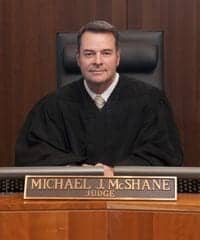 The decision by Judge Michael McShane (top, left) in Oregon is reminiscent of Judge Vaughn Walker's decision striking down Prop 8 in California. Both judges are gay. Both cases (eventually) had the state government on the plaintiffs' side and arguing against maintaining the ban. Unlike the Prop 8 case, there was no stay in Oregon. Gay couples are already getting married.
The decision by Judge Michael McShane (top, left) in Oregon is reminiscent of Judge Vaughn Walker's decision striking down Prop 8 in California. Both judges are gay. Both cases (eventually) had the state government on the plaintiffs' side and arguing against maintaining the ban. Unlike the Prop 8 case, there was no stay in Oregon. Gay couples are already getting married.
And there will be no stay. There is no one in the case to ask for one. It is true that a stay was granted in the Utah case and just in this morning in Idaho, but the National Organization for Marriage's attempt to intervene in the case was rejected (though the organization's appeal is, oddly, still pending).
Notably, the intervention was rejected on the basis of the Supreme Court's decision in Perry, the Prop 8 case, where the Court rejected standing for initiative supporters. This is one of the first times the Perry decision has been cited since the opinion was handed down.
But in this case, the state government did more than just elect not to defend the ban. The governor and attorney general cited the Supreme Court's decision in Windsor as the reason they dropped the defense. After Windsor, they argued, state bans on same-sex marriage were clearly unconstitutional. What's more, Attorney General Ellen Rosenblum took the Windsor opinion as an opportunity to order all state agencies to recognize same-sex marriages performed out of state. That, together with the fact that Oregon already provided extensive benefits to gay couples, suggested that the state had no interest in keeping the word "marriage" away from gays.
Judge McShane's opinion was a narrow one, based exclusively on equal protection.
The plaintiffs in the case had brought up the argument that banning gays from marrying was a form of sex discrimination, thus requiring heightened scrutiny. How is a ban on gay marriage a form of discrimination based on sex or gender? Think about it this way: Bans on gays marrying mean that a man can marry a woman but because he is a man, he cannot marry a man. He is being discriminated on the basis of his gender.
Judge McShane rejected that argument, however, seeing it as obscuring the fact that these laws express animus toward gays, not the sexes. He noted that the Ninth Circuit's decision in Abbott Labs required heightened scrutiny for antigay discrimination, but declined to be bound by it because it is on appeal and not final. That didn't matter, however. Oregon's ban was unconstitutional even on the lowest form of scrutiny.
This reminds us of many decisions that have come before, from the early ones (Gill, for example) to the more recent ones (Idaho, for example), where judges declined to touch scrutiny because they didn't need to: gay marriage bans are utterly irrational and unconstitutional no matter how you look at them.
 The most remarkable thing about the decision is how personal it is. Consider this quote:
The most remarkable thing about the decision is how personal it is. Consider this quote:
Generations of Americans, my own included, were raised in a world in which homosexuality was believed to be a moral perversion, a mental disorder, or a mortal sin. I remember that one of the more popular playground games of my childhood was called "smear the queer" and it was played with great zeal and without a moment's thought to today's political correctness. On a darker level, that same worldview led to an environment of cruelty, violence, and self-loathing. It was but 1986 when the United States Supreme Court justified, on the basis of a "millennia of moral teaching," the imprisonment of gay men and lesbian women who engaged in consensual sexual acts. Even today I am reminded of the legacy that we have bequeathed today's generation when my son looks dismissively at the sweater I bought him for Christmas and, with a roll of his eyes, says "Dad… that is so gay."
His lyricism continued, but this passage struck me not only for its deeply personal message on how legal equality can affect us, but also as a milestone. A federal judge could doubtful have been so open about his sexuality ten or even five years ago. Judge McShane brought the tough realities of his life experience to a decision on discrimination. Over the last 30 years, our judiciary has only begun to reflect the history of discrimination of African-Americans and, more recently, women. It is high time our judicial tradition starts to include the personal histories of gays and lesbians. Judge McShane's personal exploration in his decision is a great step in that direction.
An analysis of the Pennsylvania ruling coming in Part II.
***
Follow me on Twitter and on Facebook.
Ari Ezra Waldman is a professor of law and the Director of the Institute for Information Law and Policy at New York Law School and is concurrently getting his PhD at Columbia University in New York City. He is a 2002 graduate of Harvard College and a 2005 graduate of Harvard Law School. Ari writes weekly posts on law and various LGBT issues.



